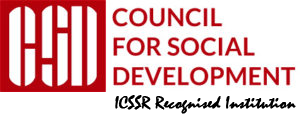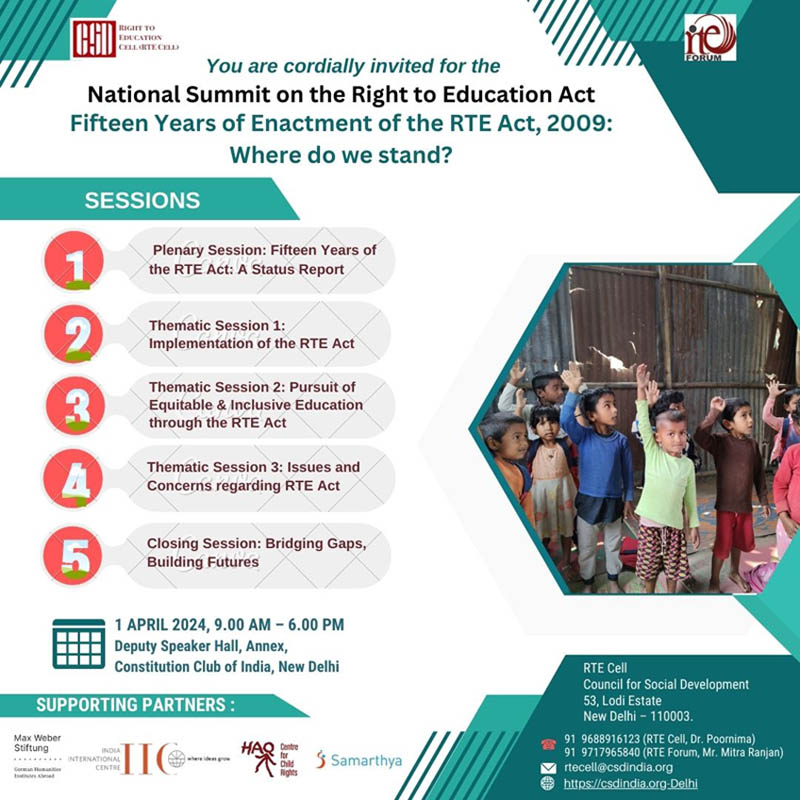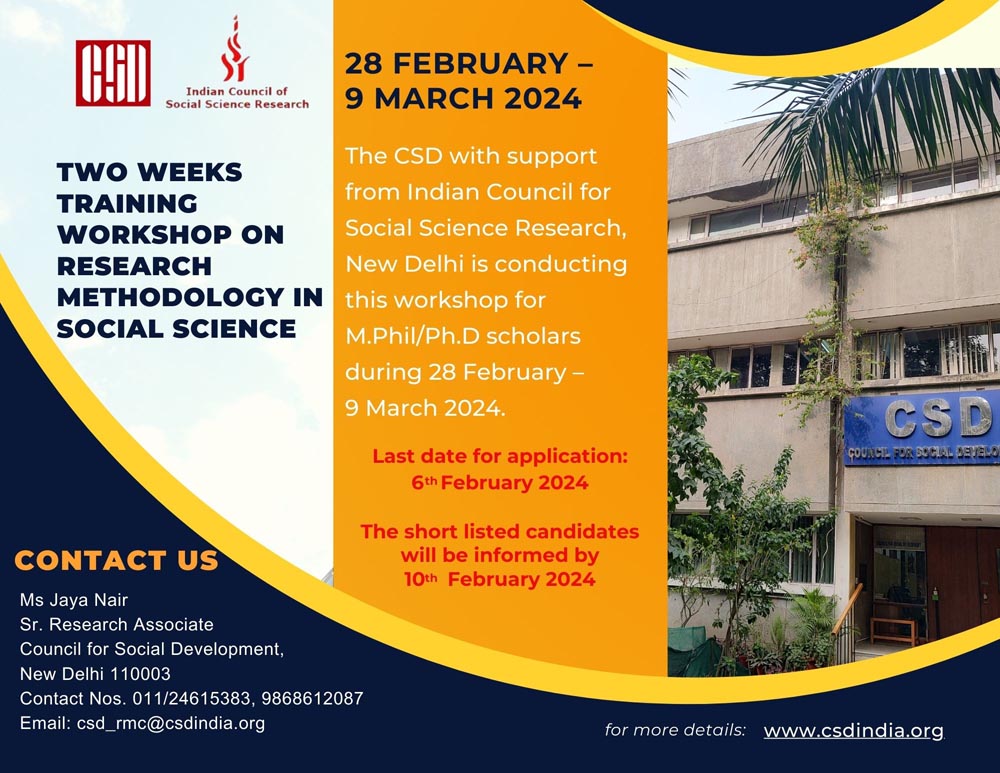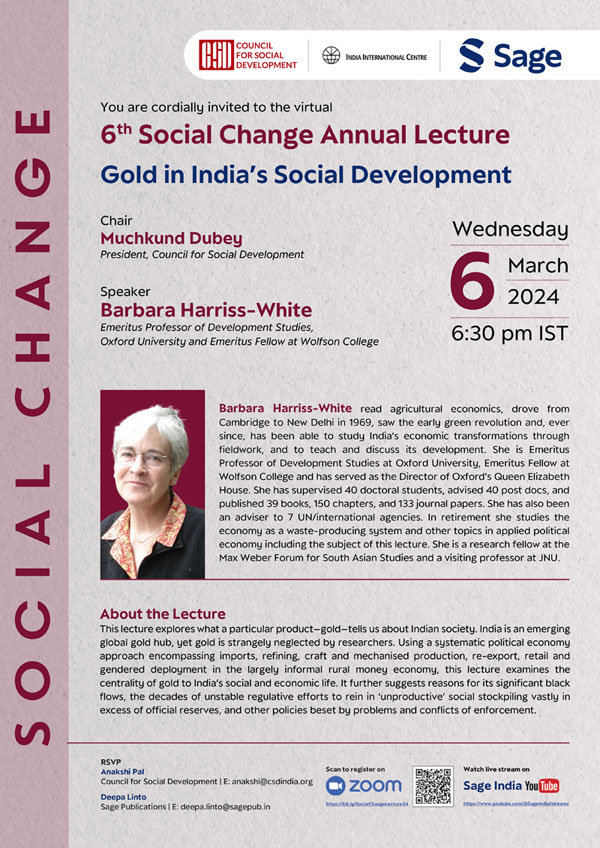National Summit on the RTE Act
15 Years of the Implementation of the Right to Education Act
– Where Do We Stand?
The RTE Cell at CSD Organizes National Summit to Review
Fourteen years have passed since the implementation of the Right of Children to Free and Compulsory Education Act, marking a significant juncture in India’s pursuit of educational equity and inclusivity. The 2024 National Summit on the Right to Education (RTE) Act, held on April 1, brought together stakeholders from across sectors to critically evaluate the progress and challenges associated with the RTE Act.
Introduced by the government of India in 2009, the RTE Act became effective on April 1, 2010. This legislation enshrined the fundamental right to education for every child aged 6 to 14 years, and aimed to foster equality, social justice, and democracy. The larger goal was to provide inclusive elementary education to all, regardless of government affiliation. Despite noble intentions, the effective implementation of the RTE Act has been marred by challenges such as varying progress across states, financial constraints, and implementation hurdles, further exacerbated by the COVID-19 pandemic. As the nation marked 15 years of the Act’s implementation on April 1, 2024, the National Summit, organized by the RTE Cell at the Council for Social Development (CSD), New Delhi, in collaboration with the RTE Forum, served as a platform for dialogue, collaboration, and reflection.
Key speakers at the Summit, including Muchkund Dubey, President of CSD, highlighted persisting challenges. Children outside schools, who were meant to be included within three years of implementation of RTE, still remain excluded. Critiquing the mass closure of schools and the privatization of school education – a recurrent theme – Prof. Dubey emphasized that the dream of a viksit Bharat cannot be realized without a shiksit Bharat. Reflecting on the status of implementation of the RTE act in the past 14 years, the National Co-ordinator of the RTE Cell at CSD, VP Niranjanaradhya, called the mass closure of government schools a mockery of the RTE Act. While Prof. R. Govinda saw the state’s role towards implementation of the RTE Act, as ‘a reluctant embrace’. The decision to adopt a hierarchical system of schooling, Prof. Govinda highlighted, was against the rights framework, and restructuring the entire school system offered the way out, in order to create a more equitable one.
Amidst challenges, stories of success and inspiration were shared at the Summit. Noor Mohammad, State Convener, RTE Forum, Rajasthan, for instance, recounted his work in that region, empowering first-generation female students to pursue higher education and career aspirations, challenging societal norms surrounding gender and education.
However, discussions also addressed systemic issues such as neoliberal policies impacting education, the growing marketization of schooling, and the shifting responsibility of education from the state to parents. Venkatanarayanan S, Associate Professor at a university in Bangalore, underscored the detrimental effects of decreased funding on public education and the perpetuation of a narrative that devalues public schooling.
The Summit concluded with a call for renewed commitment to strengthening the implementation of the RTE Act, ensuring the fundamental right to education for every child in India. By fostering dialogue, sharing experiences, and identifying actionable strategies, the Summit aimed to strengthen the process of implementation of the RTE Act, thereby upholding the fundamental right to education for every child in the country.

About the Summit:
The Summit is a day-long deliberation by renowned scholars, policy makers, practitioners, teachers, academia, civil society organizations and others, on diverse issues of education that has its implication on the right of children to equitable and quality education. The day-long discussion will serve as a forum to share the state experiences, to know the perspectives of key experts and educationist on the implementation of the RTE Act and to reflect on the way forward in giving effect to the RTE Act.



